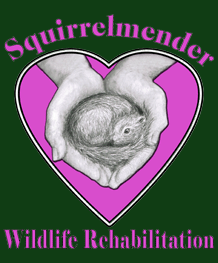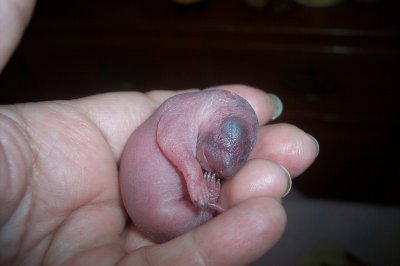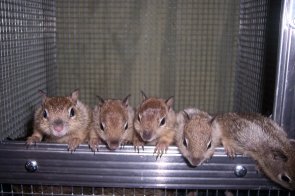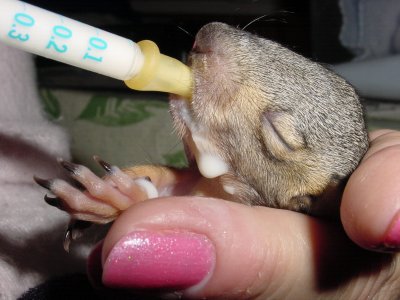
- Home
- Helping Wildlife
- Important Rescue Info!
- Found A Baby Squirrel?
- Found A Juvenile Squirrel
- Found Adult Squirrel
- How to Rescue Wildlife
- Handling Wildlife
- What About Rabies
- Dead Wildlife
- Find a Rehabber
- Make a Donation
Every dollar donated to Squirrelmender Wildlife Rehabilitation goes directly to the care of wildlife providing food, medical supplies and housing for the hundreds of animals that come through here.
Donate NOW
Squirrelmender Wildlife Rehabilitation
330 Charro AvenueAddress
Thousand Oaks, CA
91320
A tax-exempt, non-profit permitted by the California Department of Fish and Game.
Phone:805-498-8653
E-mail:
We also accept online donations through Network for Good.

Thousand Oaks, CA 91320
phone: 805-498-8653
cell: 805-338-0481
Helping Wildlife
|
While most people who find injured wildlife have the best intentions they often do harm by either doing too much or too little. General InformationIt is important that you get the animal to the proper facility because:1. Baby animals need to be raised with others of their particular species and age in order to properly develop socially and learn survival techniques. Often a surrogate mother, or siblings can be provided to help them learn the survival techniques. 2. Each species has totally different nutritional needs and babies must be fed frequently. 3. Veterinarians will not treat wildlife that is illegal to own. 4. Most wild animals do not do well in captivity and will spend their time trying to escape. (Cottontails are not like domestic rabbits and will simply die in captivity.) If they are allowed freedom in a house, they will be very destructive (chewing, eliminating, etc.). (According to animal shelter sources, sixty percent of all wild animals who are kept as pets die within the first month of ownership; of the remainder, 20 percent die within the first year, and only 10 percent are still alive by the end of the second year.) 5. An animal that is not properly rehabilitated, or transitioned to the wild, is doomed if it is turned loose to fend for itself. 6. Many wild animals carry diseases which can be transmitted to humans or domestic animals through feces or other means. Reptiles (like turtles and even pet iguanas) in particular carry salmonella, which can cause diarrhea and fever, and can be life-threatening to children, the elderly, and people with weakened immune systems. This information is posted with the permission of its authors
- the Wildlife Rescue League, Falls Church, VA
|
    |